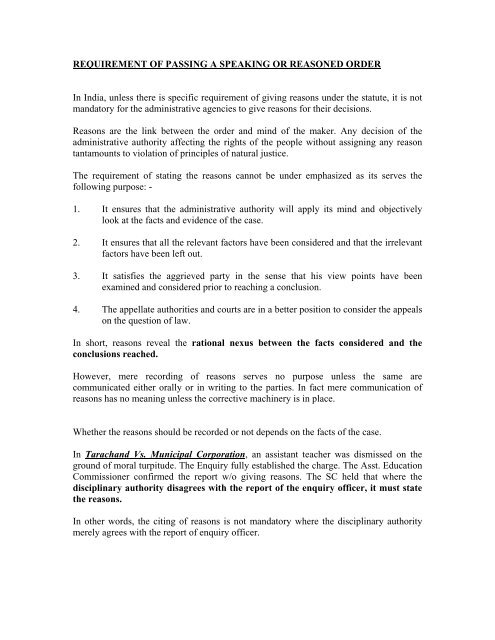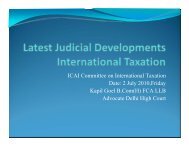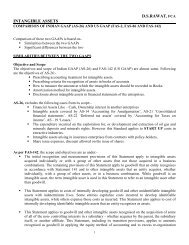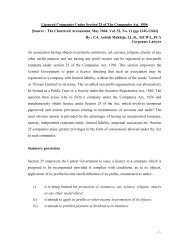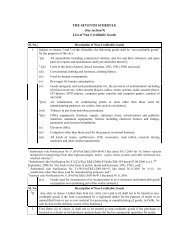PRINCIPLES OF NATURAL JUSTICE - hreat
PRINCIPLES OF NATURAL JUSTICE - hreat
PRINCIPLES OF NATURAL JUSTICE - hreat
Create successful ePaper yourself
Turn your PDF publications into a flip-book with our unique Google optimized e-Paper software.
REQUIREMENT <strong>OF</strong> PASSING A SPEAKING OR REASONED ORDER<br />
In India, unless there is specific requirement of giving reasons under the statute, it is not<br />
mandatory for the administrative agencies to give reasons for their decisions.<br />
Reasons are the link between the order and mind of the maker. Any decision of the<br />
administrative authority affecting the rights of the people without assigning any reason<br />
tantamounts to violation of principles of natural justice.<br />
The requirement of stating the reasons cannot be under emphasized as its serves the<br />
following purpose: -<br />
1. It ensures that the administrative authority will apply its mind and objectively<br />
look at the facts and evidence of the case.<br />
2. It ensures that all the relevant factors have been considered and that the irrelevant<br />
factors have been left out.<br />
3. It satisfies the aggrieved party in the sense that his view points have been<br />
examined and considered prior to reaching a conclusion.<br />
4. The appellate authorities and courts are in a better position to consider the appeals<br />
on the question of law.<br />
In short, reasons reveal the rational nexus between the facts considered and the<br />
conclusions reached.<br />
However, mere recording of reasons serves no purpose unless the same are<br />
communicated either orally or in writing to the parties. In fact mere communication of<br />
reasons has no meaning unless the corrective machinery is in place.<br />
Whether the reasons should be recorded or not depends on the facts of the case.<br />
In Tarachand Vs. Municipal Corporation, an assistant teacher was dismissed on the<br />
ground of moral turpitude. The Enquiry fully established the charge. The Asst. Education<br />
Commissioner confirmed the report w/o giving reasons. The SC held that where the<br />
disciplinary authority disagrees with the report of the enquiry officer, it must state<br />
the reasons.<br />
In other words, the citing of reasons is not mandatory where the disciplinary authority<br />
merely agrees with the report of enquiry officer.


